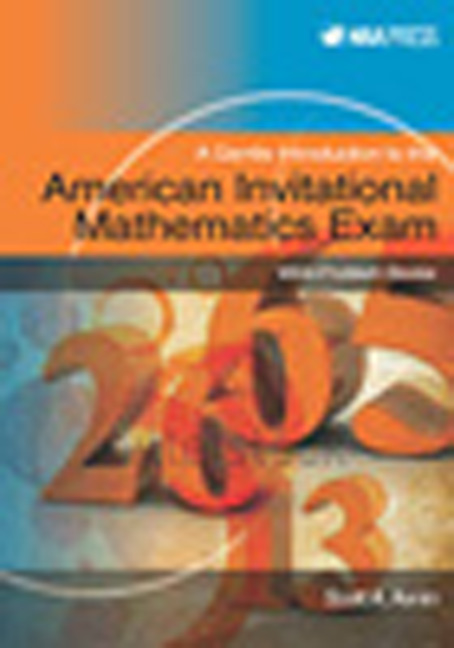Book contents
- Frontmatter
- Contents
- Preface
- List of Abbreviations and Symbols
- 1 Algebraic Equations
- 2 Combinatorics
- 3 Probability
- 4 Number Theory
- 5 Sequences and Series
- 6 Logarithmic and Trigonometric Functions
- 7 Complex Numbers and Polynomials
- 8 Plane Geometry
- 9 Spatial Geometry
- 10 Hints for the Exercises
- 11 Solutions to Exercise Sets
- Answers to All Exercises
- About the Author
- Index
2 - Combinatorics
- Frontmatter
- Contents
- Preface
- List of Abbreviations and Symbols
- 1 Algebraic Equations
- 2 Combinatorics
- 3 Probability
- 4 Number Theory
- 5 Sequences and Series
- 6 Logarithmic and Trigonometric Functions
- 7 Complex Numbers and Polynomials
- 8 Plane Geometry
- 9 Spatial Geometry
- 10 Hints for the Exercises
- 11 Solutions to Exercise Sets
- Answers to All Exercises
- About the Author
- Index
Summary
Mathematics may be defined as the economy of counting. There is no problem in the whole of mathematics which cannot be solved by direct counting.
—Ernst MachIntroduction
Combinatorics is a broad term that refers to the mathematics of counting. Many problems in the AIME competitions ask students to determine in how many ways something can be done. In addition, many problems in the AIME that initially give no hint of combinatorics turn out to require counting techniques to obtain the answer. Indeed, it is common for the essence of an AIME problem to remain hidden until one becomes absorbed in it, and the mathematics at the core of the problem can often come from a different subject matter than it may seem at first. It often turns out that combinatorics is at the heart of an initially non-combinatorics looking problem. Therefore, this chapter is one of the most important in the book.
Although many problems on counting at the AIME level can be posed in an elementary way, combinatorics can be slippery. In the theory of counting there are fewwidely applicable formulas or set procedures.With each problem a careful analysis must be made anew. Most attempts to place counting strategies into a pedagogical apparatus begin by asking two fundamental questions about the arrangements of objects that are being counted:
Question 2.1.1.Does the order of the objects matter?
Question 2.1.2.Is repetition of objects allowed?
The questions give rise to four cases: (1) order of objects matters and repetition of objects is allowed, (2) order of objects matters and repetition of objects is not allowed, (3) order of objects does not matter and repetition of objects is allowed, and (4) order of objects does not matter and repetition of objects is not allowed. Arrangements of objects in which the order of the objects matters are called permutations, while arrangements in which the order of the objects does not matter are called combinations. In the next sections, we study permutations and combinations, both with and without repetition and give examples that model each case.
- Type
- Chapter
- Information
- Publisher: Mathematical Association of AmericaPrint publication year: 2016



